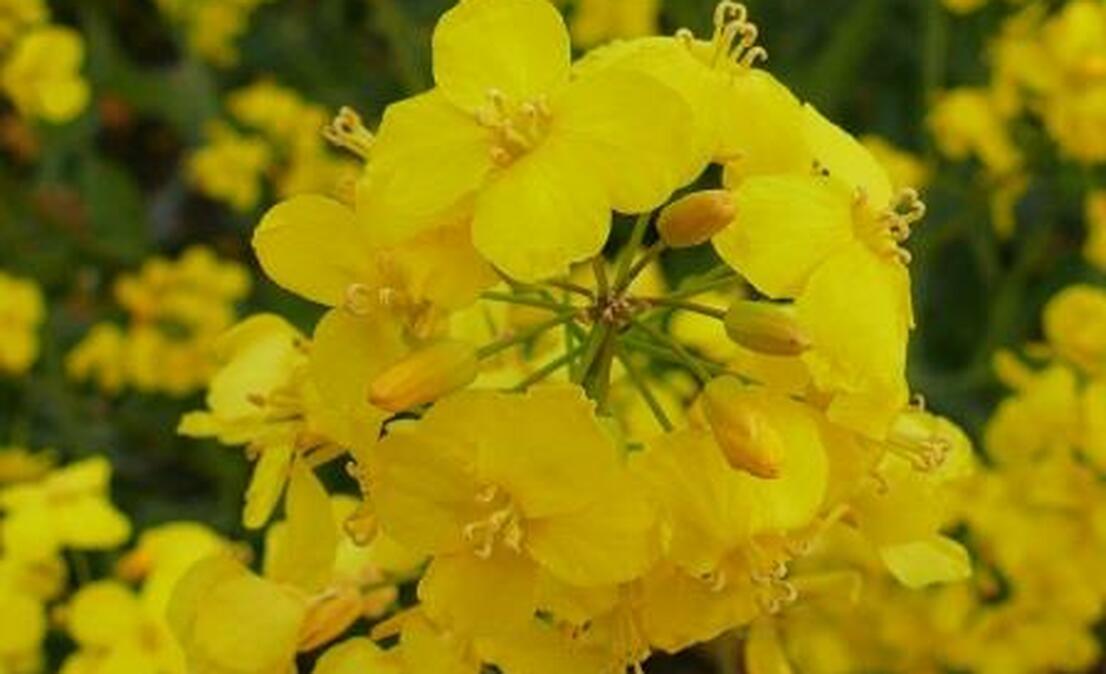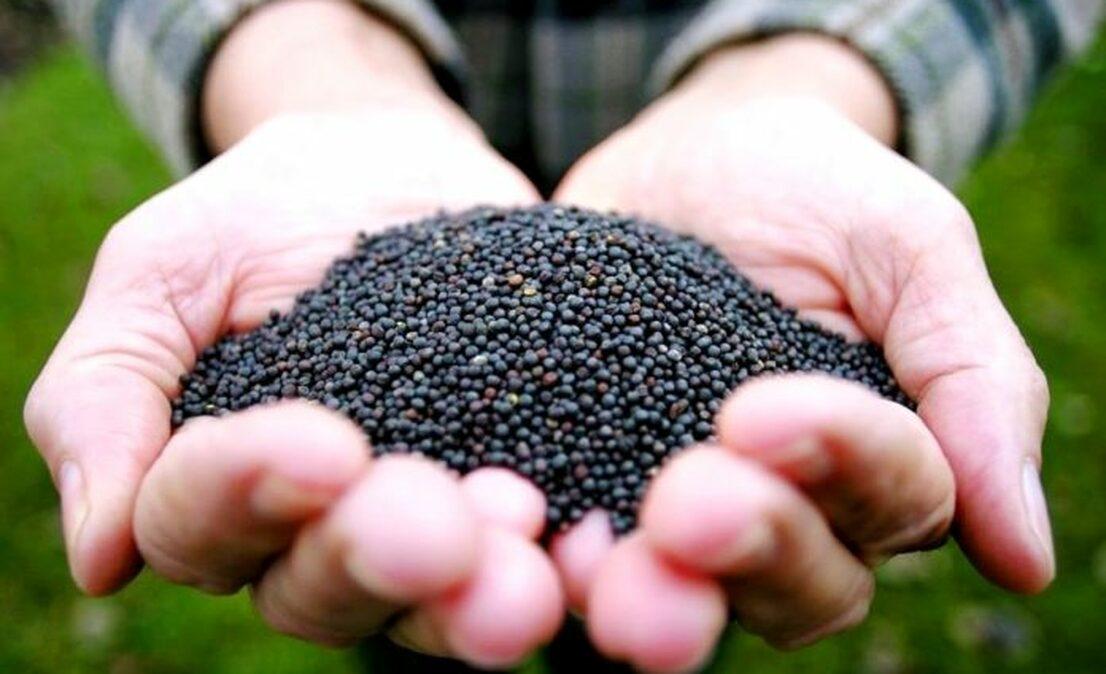Rapeseed hybrids resistant to imidazolinones
When it comes to sowing winter rapeseed, an experienced agronomist will immediately list the difficulties and cautions of growing this crop. The first is, of course, moisture as the main limiting factor. Depending on the region, sowing of winter rapeseed in Ukraine starts on July 10 and lasts until about September 20. Therefore, it is highly desirable to “catch” the moisture to get strong seedlings in time. The second is the need to use growth regulators in a timely manner to prevent excessive growth of rapeseed plants in height and, consequently, their death in winter. Finally, the most efficient and timely removal of carrion and weeds from rapeseed crops is a significant factor in the future yield of rapeseed.

The latter factor is particularly relevant, as in the vast majority of cases winter wheat or barley are the predecessors of winter rapeseed. After stubble harvesting, there is a lot of stubble left over, which, along with cereal weeds, is highly competitive for young rapeseed seedlings. Also, dicotyledonous weeds such as bitterroot, quinoa and cruciferous weeds, as well as perennial thistles and milkweed, are a nuisance. In order to control all this unpleasant company for rapeseed seedlings, sometimes even increased rates of the drugs traditionally used on the crop (metazachlor, clopyralid, picloram, chisalofop-p-ethyl, etc.) are not enough.
Another thing is a group of herbicides based on imidazolinones, which, when used properly, provide real protection of crops from weeds. Therefore, it is logical that today the world's leading breeding companies are working on developing imidazolinone-resistant rapeseed hybrids. One of them is the Blackstone hybrid, which was created here in Ukraine by the team of the private breeding institution Ukrainian Scientific Institute of Breeding - VNIS. The VNIS lineup currently includes eight registered rapeseed hybrids, and three of them - Parker, Thunder and Blackstone - are resistant to imidazoline herbicides.
This is not about some initial breeding samples or demonstration trials - the Blackstone hybrid is already widely grown in commercial crops in different regions of Ukraine, demonstrating decent yields and high profitability. Blackstone belongs to the early-ripening hybrids (the growing season is 295-300 days), has an oil content of 46.4% and a minimum content of erucic acid.
The main feature of the hybrid, as already mentioned, is resistance to imidazolinones. In principle, our research has shown that it is possible to apply up to 1.2 liters of Nopasaran and Euro-Lightning herbicides per 1 hectare at a time. However, I recommend simply following the recommendations of the manufacturer of each product,” advises Vladimir Viktorovich Skoryk, a scientist and agronomist who has been working directly with both the Blackstone hybrid and other VNIS rapeseed hybrids for several years.
It is interesting that the breeding work to create imidazolinone-resistant rapeseed hybrids is also focused on increased plant resistance to diseases and stress factors. This fully applies to the Blackstone hybrid, which has a “high” or “very high” resistance score for almost all resistance parameters. We are talking about such diseases of rapeseed as phomosis, blackleg, peronosporosis, sclerotinia, alternaria, bacteriosis and such traits as drought and winter resistance, as well as resistance to shedding and lodging.

Blackstone winter rape hybrid from VNIS
For Blackstone, as well as for other VNIS winter rape hybrids, we had stable high yield results during the last season. This year's crops can be estimated in the same way. It is around 4 t/ha under normal agricultural practices and minimum sufficient rainfall.
Experts recommend paying special attention to the use of growth regulators in the fall and spring to control the excessive growth of the central stem. This is especially important when rapeseed plants can outgrow in the fall. The optimal development of plants is in the fall, when they form the maximum number of lateral buds in the leaf axils. For this purpose, as a growth regulator, we recommend using preparations containing tebuconazole (250 g/l) at a rate equal to 0.1 l/ha of the preparation for each true leaf. That is, if rapeseed plants have 4 leaves each, 400 g of such preparations should be applied. In addition to its growth-regulating effect, tebuconazole has a fungicidal effect, protecting plants from diseases.
It is also worth noting that the number of insecticide treatments on rapeseed can reach 4-5, depending on regional and climatic conditions, as well as the seasonal distribution of certain pest species. Therefore, preventive insecticide treatments of this crop are mandatory.As with every crop, rapeseed has its own requirements for the supply of certain macro- and microelements. In the case of rapeseed, this should include, of course, the application of the required NPK rate, as well as pre-sowing application of sulfur-containing fertilizers, as rapeseed is particularly demanding on the availability of this meso-element. During the growing season, it is recommended to apply boron at least twice on the leaves (in autumn and spring), which is a mandatory agricultural measure, as boron is responsible for the formation of generative organs. It is also necessary to use additional magnesium in foliar fertilization on this crop - it is effective in sulfate form.
Against the backdrop of the obvious difficulties that can arise when growing winter rape, imidazolinone-resistant hybrids such as Blackstone provide additional benefits, as the issue of herbicide protection is fully resolved and, at the same time, there is a high level of genetic resistance to diseases and stressful environmental conditions. Another important factor that positively affects the profitability of growing Blackstone hybrids is the cost of seed, which is significantly lower compared to foreign hybrids.
Blackstone, like other rapeseed hybrids of the All-Ukrainian Scientific Institute of Breeding, has its own unique features and characteristics. A characteristic feature of all VNIS hybrids without exception is their versatility: here they are not divided according to the recommended regional characteristics, and selection is aimed at maximizing the manifestation of all the traits that form the yield.
In general, the Blackstone winter rape hybrid can be considered a worthy competitor to other hybrids of this crop from different manufacturers based on the results of growing in industrial crops and on demonstration plots. This is a good disease-resistant hybrid that produces a yield of about 4-5 tons per hectare. On high agricultural backgrounds under favorable weather conditions, the yield can be much higher - up to 6.5-7.0 t/ha, as Blackstone has a solid genetic potential. The hybrid can be successfully grown in all regions of Ukraine and provide high yields and profitability of this crop.

 Choose a country
Choose a country